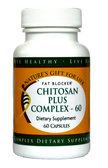Constipation
DOCTORS RECOMMENDED PRODUCTS
The term constipation refers to a change in daily bowel habits, particularly a decrease in the frequency of bowel movements, pain or straining to produce a bowel movement, or excessively hard stools. Constipation occurs when food moves too slowly through the digestive tract leading to difficulty passing stools from the body. Regular bowel movements are essential for good health, but most people experience constipation occasionally.
Constipation is one of the most common digestive complaints. About 80 percent of people experience constipation at some time during their lives. Brief periods of constipation are normal. Constipation is most common in children and mature adults, and it affects women more than men.
It is also very common during pregnancy. Many people think it is optimal to have one bowel movement each day. But “normal” varies from person to person. Some have bowel movements three times a day, while others move their bowels just three times a week. Each person’s body has its own normal number of bowel movements. It depends on the food you eat, how much you exercise and past health and dietary history.
In general, anyone who experiences straining with painful to pass pellet-like or hard stools, cannot fully empty the bowels, or has fewer than three bowel movements a week on an ongoing basis is considered constipated. Normal stool color should be walnut brown and have the consistency of a paste. Its length should be the length of a banana or longer and it should leave the body easily. Stool should be well formed and float in water, before gently submerging.
In addition to the discomfort caused by constipation itself, chronic (long-term) constipation can cause several other side effects including: anemia, colic, fatigue, gallstones, hemorrhoids, indigestion, insomnia, nausea, and vertigo (dizziness). The amount of time it takes for a meal to go from the mouth to the rectum is called transit time, and a healthy transit time is less than 24 hours.
Constipation is the result of poor digestive and bowel habits, which slow down the transit time, allowing waste materials to sit longer in the intestines. A key cause is an insufficient amount of fiber in the diet. Other contributing factors include: dehydration, inadequate exercise, stress, depression, anxiety, poor diet, the aging process, irritable bowel syndrome, muscular disorders, or physical immobility due to injury or illness. Constipation can also be a side effect of some medications, such as painkillers, antidepressants, tranquilizers and other psychiatric medications, blood pressure medications, diuretics, iron upplements, calcium supplements, and aluminum containing antacids.
Constipation can sometimes have an unknown or idiopathic cause. Some people have a good diet, drink plenty of fluids and do not have a disorder that could cause constipation, yet they become constipated. Their bowels are said to be ‘underactive’.
This is rather common, especially among women. It often starts in childhood or early adulthood and persists throughout life. With chronic constipation, stool (waste products) can build up along the wall of the colon preventing healthy absorption of nutrients. Stool is made up of our body’s waste including undigested food, toxic waste from the liver, and billions of bacteria. As the stool sits longer in the intestines a metabolic process continues. The intestines continue to absorb water, making the stool harder and fermenting the bacteria.
This begins to rot the waste, creating toxic by-products, which are then absorbed into the bloodstream. This absorption of toxins is a form of self-poisoning, called autointoxication which has the following symptoms: ,headaches, brain fog, depression, obesity, diverticulitis, diverticulosis, PMS, bad breath, foul smelling gas, bloating, body odor, and some autoimmune conditions.
Serious diseases, including colon cancer, can sometimes first appear as bowel blockage leading to acute constipation. Therefore, particularly constipation of sudden onset, should be diagnosed by a physician. Dietary ,and other natural approaches should be used by people with constipation only when there is reason to believe no serious underlying condition exists. Regularity is usually achieved by simple lifestyle changes and better eating habits.
Healthy Things You Can Do
• Drink plenty of water and other healthy liquids such as fruit and vegetable juices and clear soups. Peristalsis is the natural wave of contractions produced by the
digestive tract in order to move food through the colon. There are many ways to stimulate peristalsis, but the most important and natural way is through hydration. Liquid helps keep the stool soft and easy to pass, so it’s important to drink enough fluids. Coffee, tea, whole milk, and soft drinks do not help with alleviating constipation and can make the problem worse. Distilled water is the best. Drink 2 to 3 liters of water per day. This is helpful for both adults and children.
• Consume enough fiber, and take a fiber supplement if needed. The colon requires bulk for it to achieve healthy movement. Optimal intake of fiber is about 25-30 grams per day. The ideal helpful as well. Even if you are confined to a wheelchair or bed, change your position frequently (or request help to do so) and perform abdominal contraction exercises and leg raises. In this case, a physical therapist can recommend a program of exercises appropriate for your physical abilities. Even 30 minutes a day can work wonders.
Additional tips:
• Take time to eat. Breathe slowly, and chew food thoroughly.
• Eat small frequent meals; avoid overeating at one sitting.
• Some constipation sufferers experience relief if they consume a glass or more of warm water in the morning as soon as possible after awakening. Drink warm lemon water just before meals to stimulate digestion.
• Include stewed or soaked prunes in your combination of soluble fiber and
insoluble fiber helps to absorb water and toxins, adds roughage to bulk up stool, and sweeps away built up debris in the intestinal tract and will keep most people regular. For fiber to be effective, drink plenty of fluids to help pass the stool.
• Eat fiber-rich foods. Vegetables: beans, cel-ery, cucumber, lettuce, acorn squash, raw broccoli, brussels sprouts, cabbage, carrots, cauliflower, spinach, black-eyed peas, other legumes, and cooked zucchini. Fresh Fruits (particularly raw fruits with peels): figs, dates, grapes, raisins, pears with skin, apricots, peaches, tangerines, mangos, avocados, coconuts, cantaloupe, blueberries, apples, and raspberries, as well as dried fruits. Whole Wheat: whole wheat bread and cereals, bran or oatmeal cereals. Nuts and seeds are also excellent sources of fiber.
• Regular exercise is also very important in establishing regular bowel movements. Participating in aerobics, walking, or doing some other activity you enjoy at least three times a week provides multiple benefits. The movement will help food travel through your intestines at a faster pace. Exercise also helps relieve chronic stress and anxiety, which often contribute to constipation. Along that line, relaxation techniques, biofeedback, breathing exercises, and yoga are very daily diet. Prunes are natural laxatives due to their fiber content. They help stimulate contractions in the intestines to eliminate waste and also attract water to the intestines, which softens the stool.
• Avoid dehydrating foods and drinks like salt, coffee, alcohol, and sugar. Avoid drugs, and speak with your health care practitioner about possible alternatives to medications that may be causing constipation.
• Decrease constipating foods: dairy products, white rice, bananas, cooked
carrots, and white flour. Limit foods that have little or no fiber such as ice cream,
cheese, snacks like chips and pizza, and processed foods such as instant mashed potatoes or frozen dinners.
• Take a nutritional/herbal fiber supplement to promote and enhance colon function–but, don’t use it to replace good high fiber foods!
• Try juice therapy or fasting to increase elimination of wastes and enhance the
healing process of the body. This provides physiological rest for the digestive and assimilative organs. After juice fasting or juice therapy, digestion and utilization
of nutrients are often improved.
• Allow yourself enough time to have a bowel movement. Sometimes we feel so hurried that we don’t pay attention to our body’s needs. Make sure you don’t ignore the urge to have a bowel movement.
• Reduce stress. Relaxation helps loosen up the whole body. Eliminate as much stress as possible, and take the time to maintain a positive attitude and get plenty of rest. Laughter is especially good for massaging the intestines.
• Improve your overall digestion. If digestion is poor, take natural digestive
aids with your meals. Papaya and pineapples are high in natural enzymes
that can help. NG4L Bromelain or NG4L Enzymes are convenient supplement sources of these enzymes.
• When you have a bowel movement, it is healthiest for the body to be in a natural squatting position. This can be done by placing a small step stool under your feet when you sit on the toilet.
• Plan ahead. Set up an eating, supplement, and exercise program that you can take with you when you travel. Good habits have to be routine enough that you can take them on the road.



